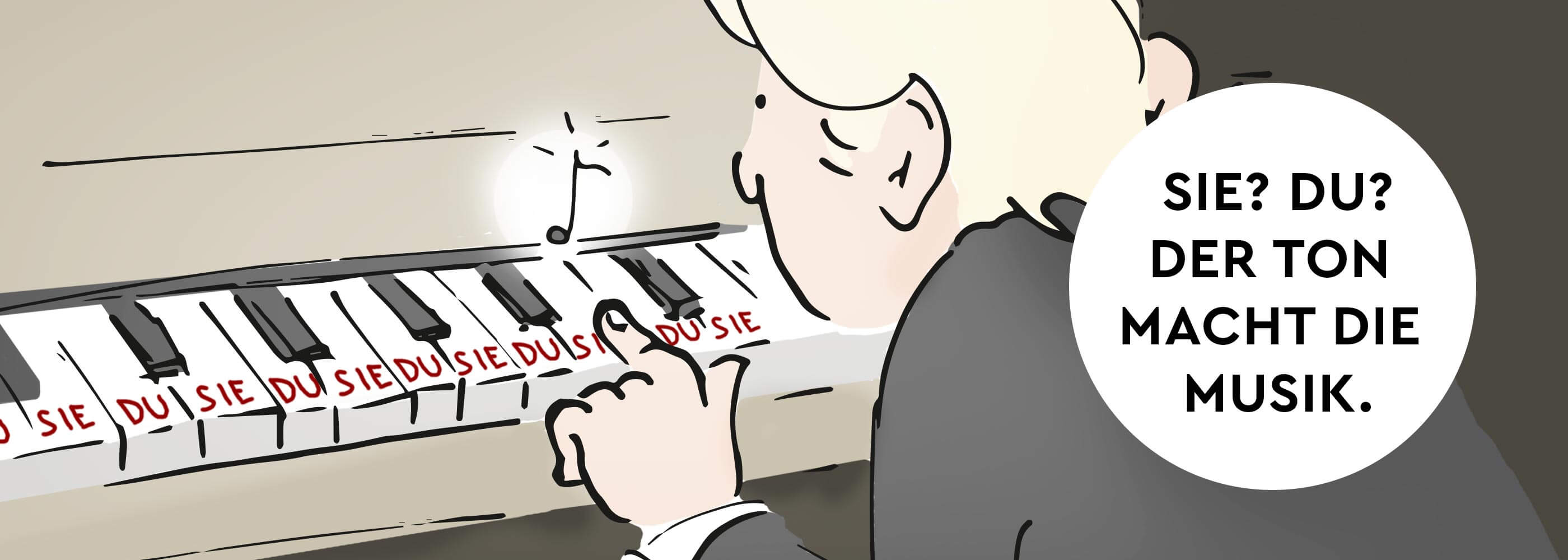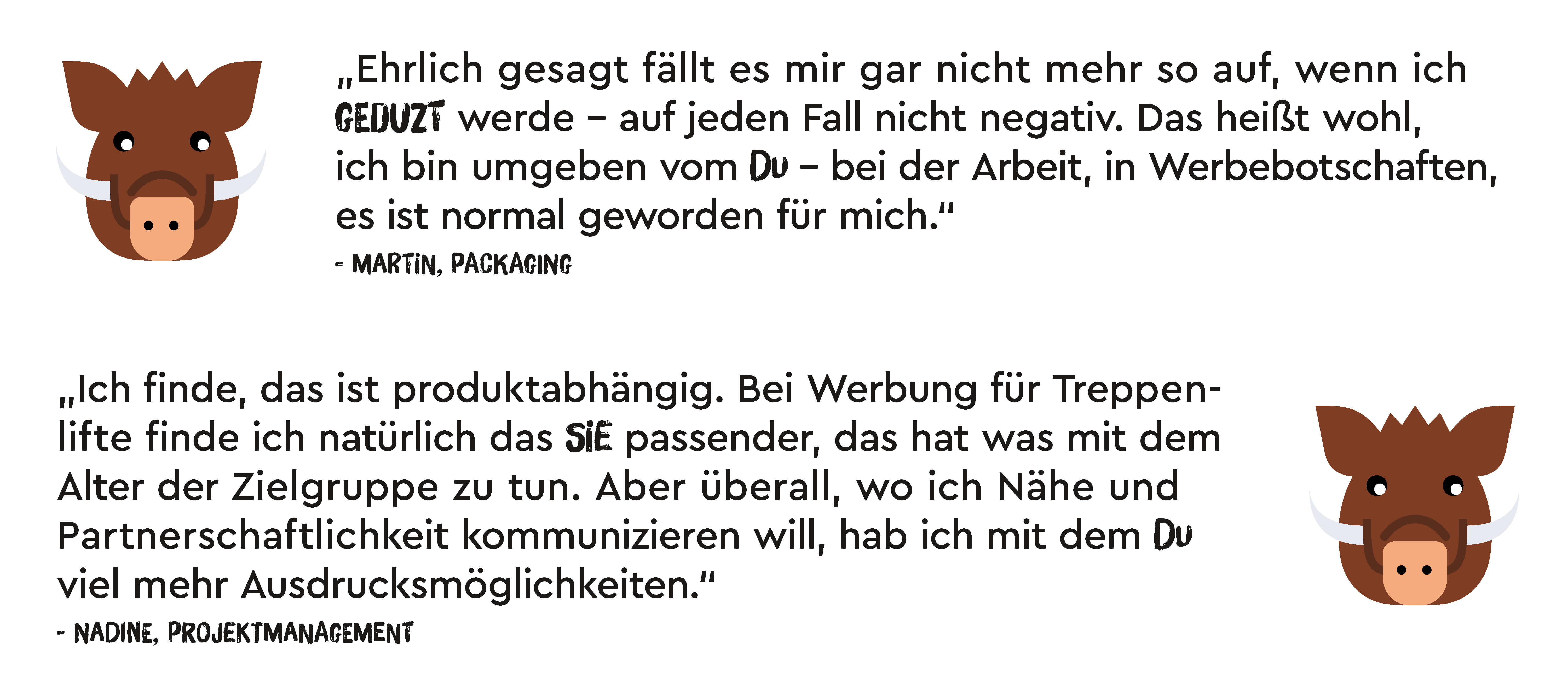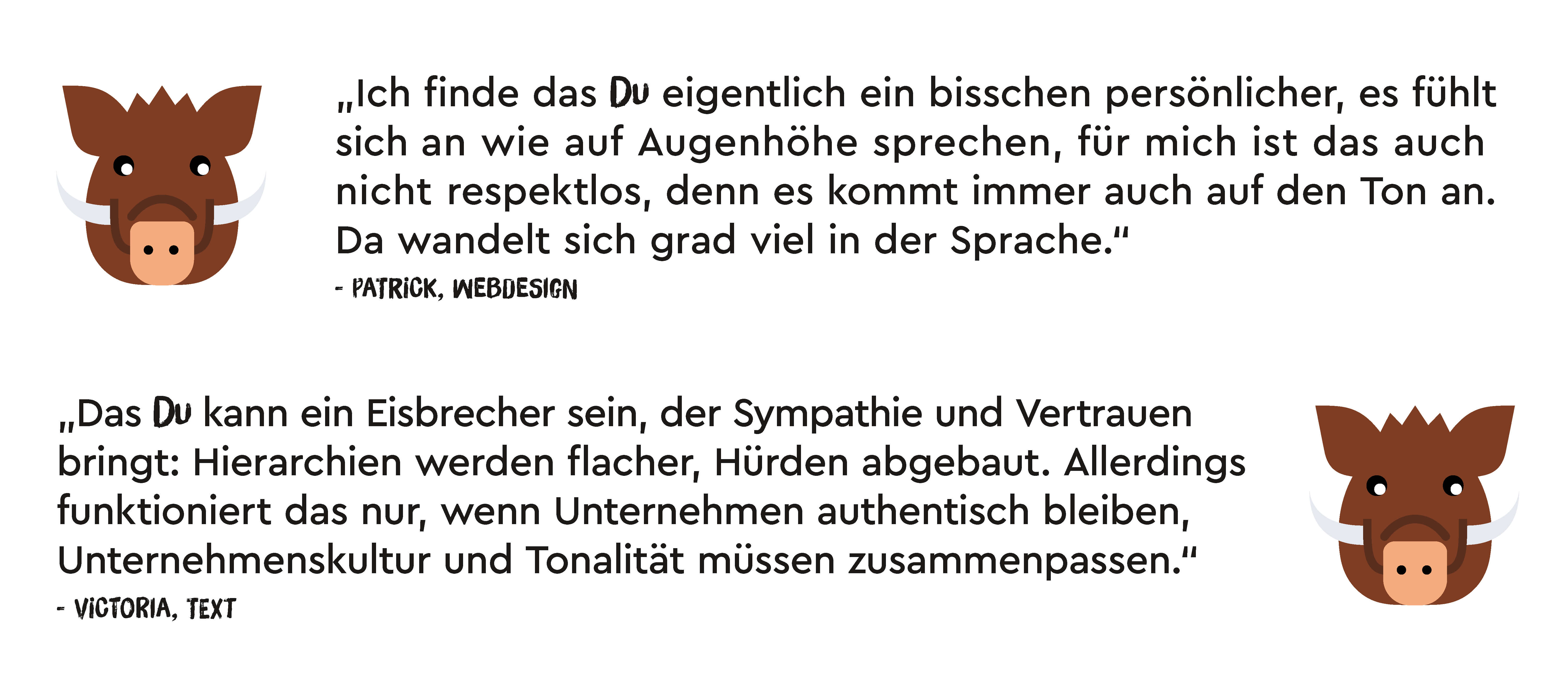

“Are you still living or are you already alive?” I know that. And I don’t know any different. Because IKEA has been calling me by my first name for as long as I can remember. I’ve always liked that. And very authentic. Because anyone who has ever been to Sweden knows: that’s what they all do there. In the middle of the street and along all ages. In fact, more than 50 years ago, the Swedes made a political decision to use first names (except for the royal family) as a sign of equality. As a Swedish company, IKEA does nothing other than live this culture. And has thus developed its own style, a corporate language.
So far so good, but since nothing in the language has been set in stone for a long time, it should be noted in passing that the Scandinavians nowadays also like to use formal language again!


To be on first-name terms or to be on first-name terms – a discourse on values
In the meantime, Aldi has also arrived at the “Du” in customer communication. Does the elderly lady feel disrespected when she reads “Your daily variety of pleasures” in the offer sheet? Probably not, but I can imagine that she thinks she has misheard the salesperson when he asks: “Can I help you?” That is a bigger step after all. Even IKEA addresses its customers in customer service – at least in Germany. And there we have it: per Sie, per Du, perplexed – the confusion is perfect. Is it really? Perhaps we need to stop thinking that we can simply define how we want to address our customers and then just have to “pull it off”.
More and more companies are thinking about how close they want to get to their customers. And that’s almost the most important thing about it. This is because dealing with the customer approach delves deep into the communication of values. Clearly, it is part of a company’s corporate identity.
However, you quickly realize that it’s not just the “you” and “you” that determine how I am perceived. After all, the sound makes the music. A polite, respectful approach can also be developed with “Du”. I find it very likeable and yes, it also touches me when a regional energy company promises me from a poster: “We’ll leave the lights on for you at night.” With “you”, this cozy, warm, confidence-inspiring tone would get stuck somewhere in caution and miss its mark.


Why should it be easy?
But there are also limits. Insurance companies, banks, doctors’ surgeries – I’m suspicious of too much proximity here. First names quickly come across as unprofessional and dubious. We too easily see through the fact that the “you” has just been pulled over someone’s pressed suit. However, it is good that language remains alive, that things change and that boundaries are sometimes pushed. Otherwise we will not find new forms of expression. Social media also play a significant role in this. “You” on Facebook and Instagram? Seems strange. Each channel has its own rules. Companies that have opted for the “you” in their communication usually use “Du” here.
A contradiction? Mixed forms are often practiced: in social media, on billboards, in flyers with offers, we find the “Du”, on websites, in newsletters and in business letters rather the “Sie”.
Long story short: it’s not that simple. Thinking about “to be on first-name terms” is an important process that goes right into the heart of the matter, into the values, the corporate culture and the external image. But this process is usually half the battle.